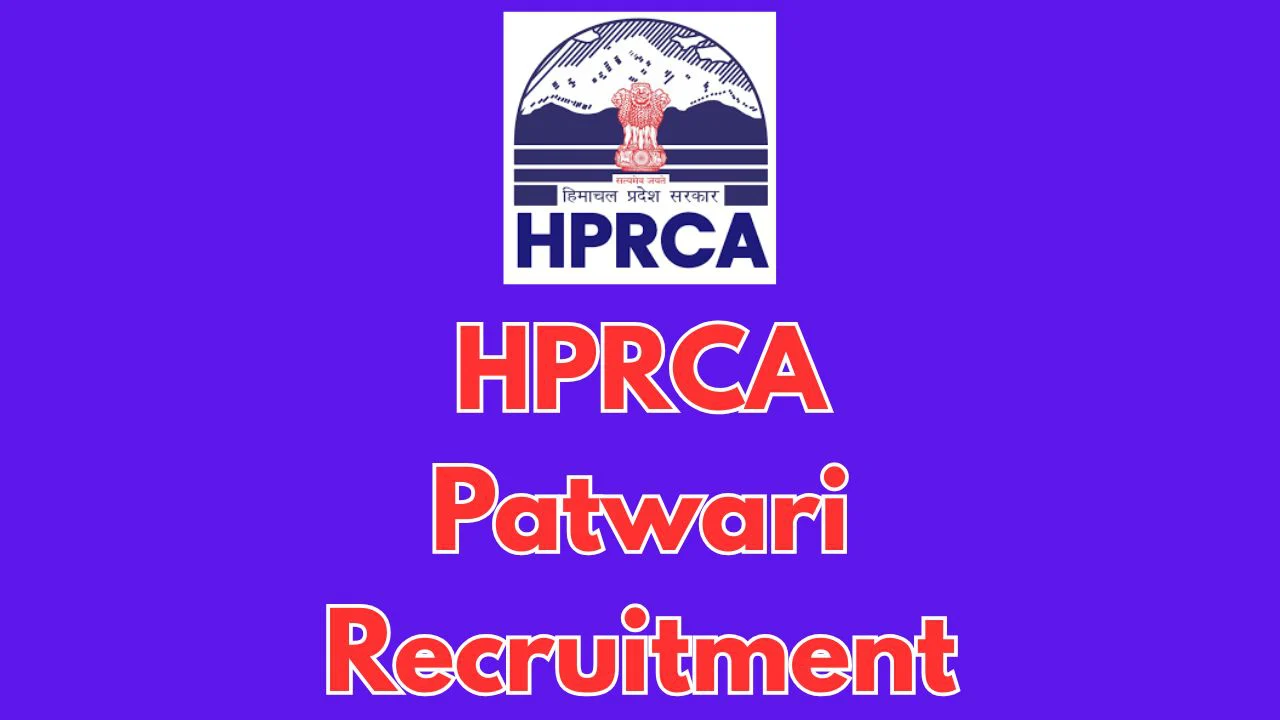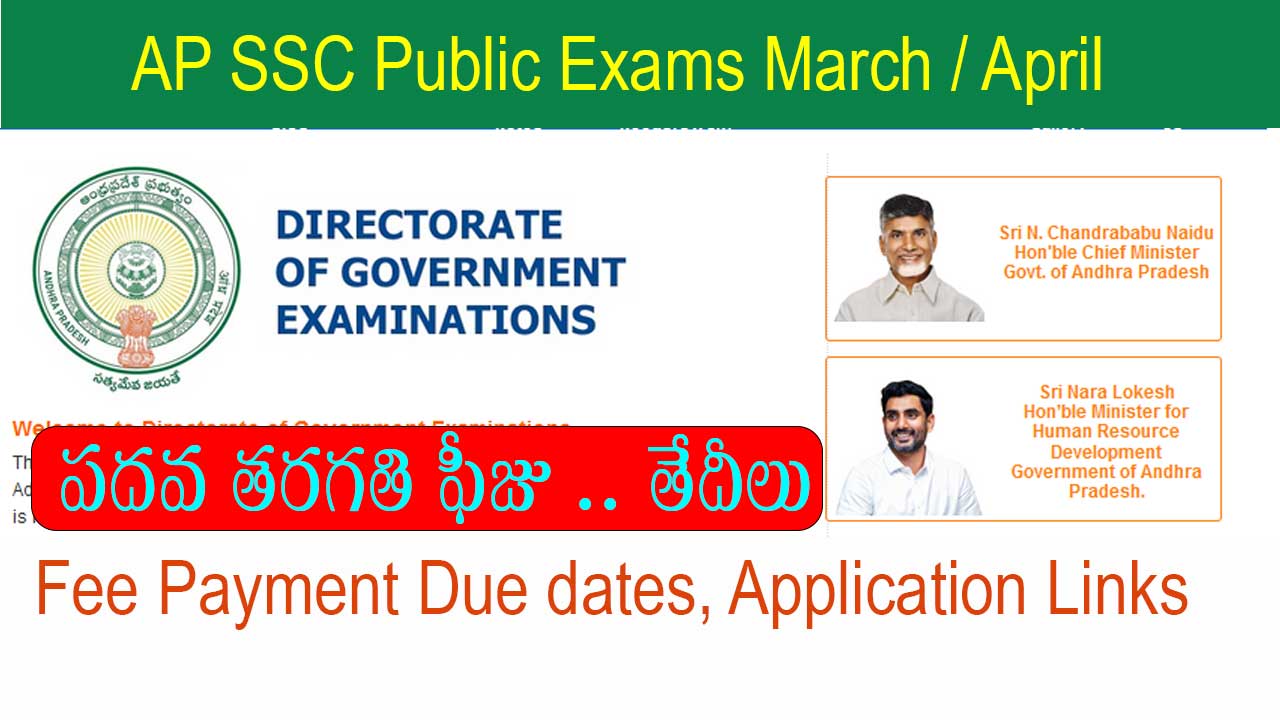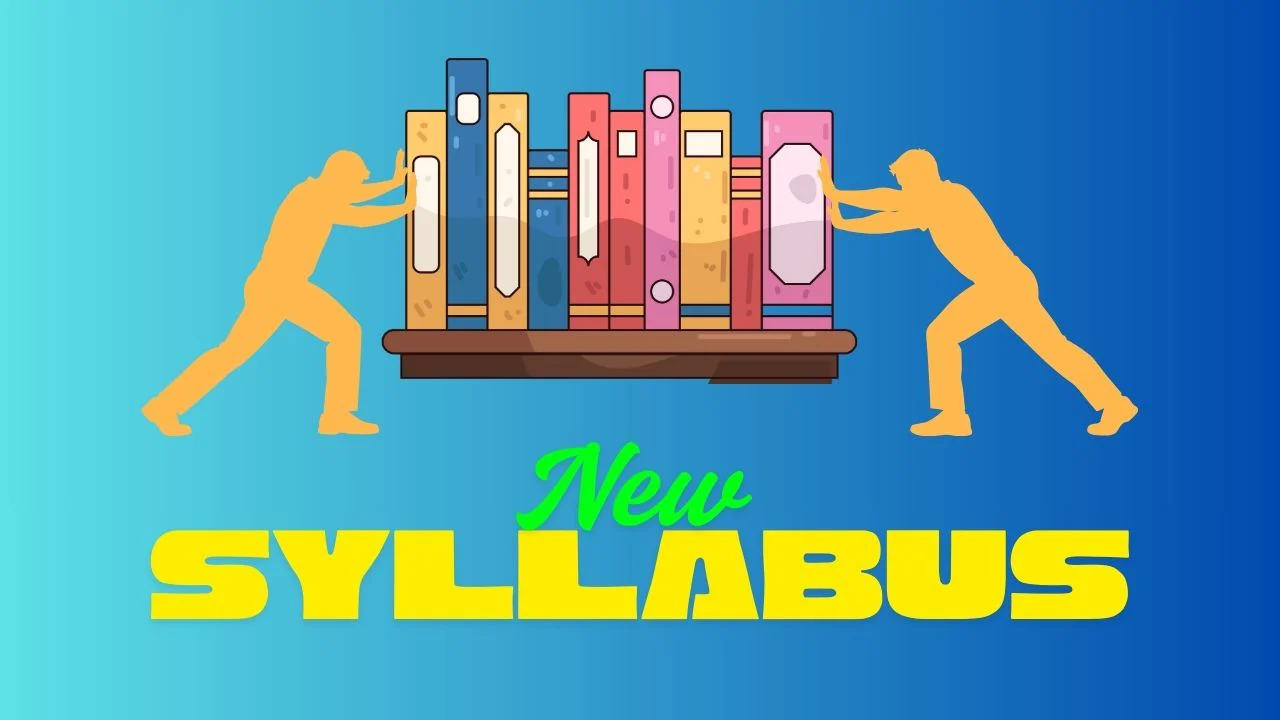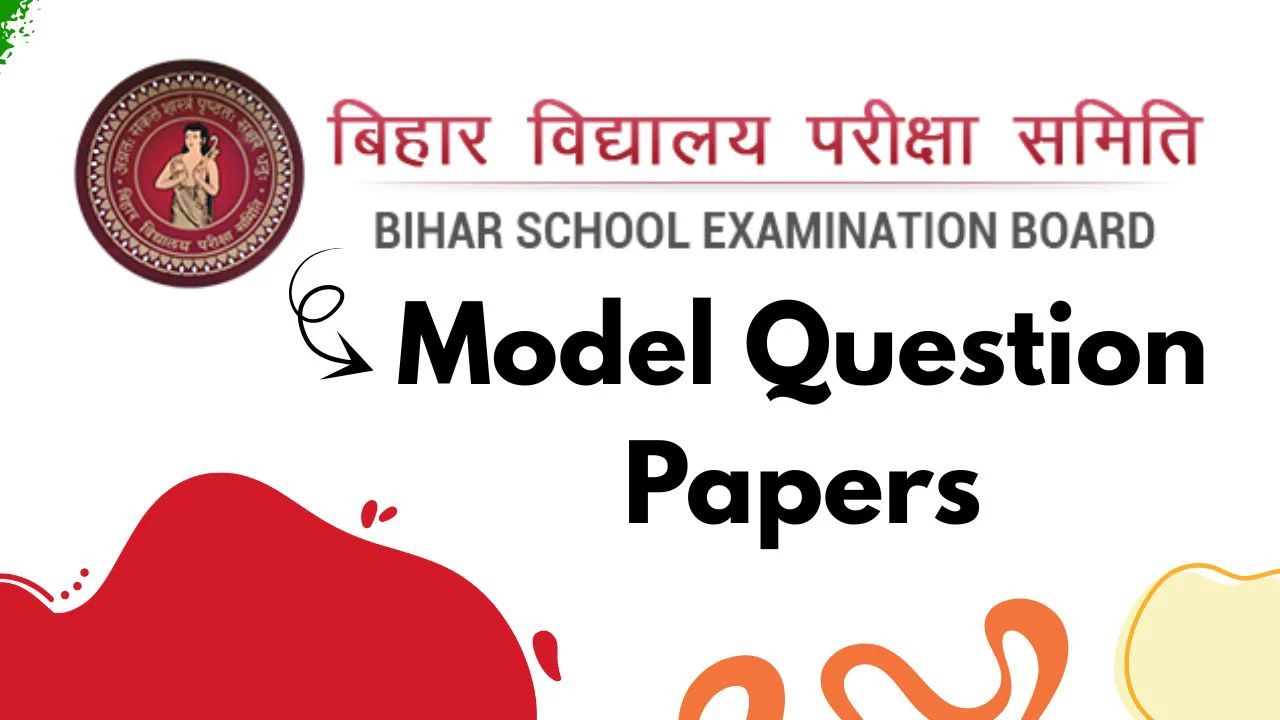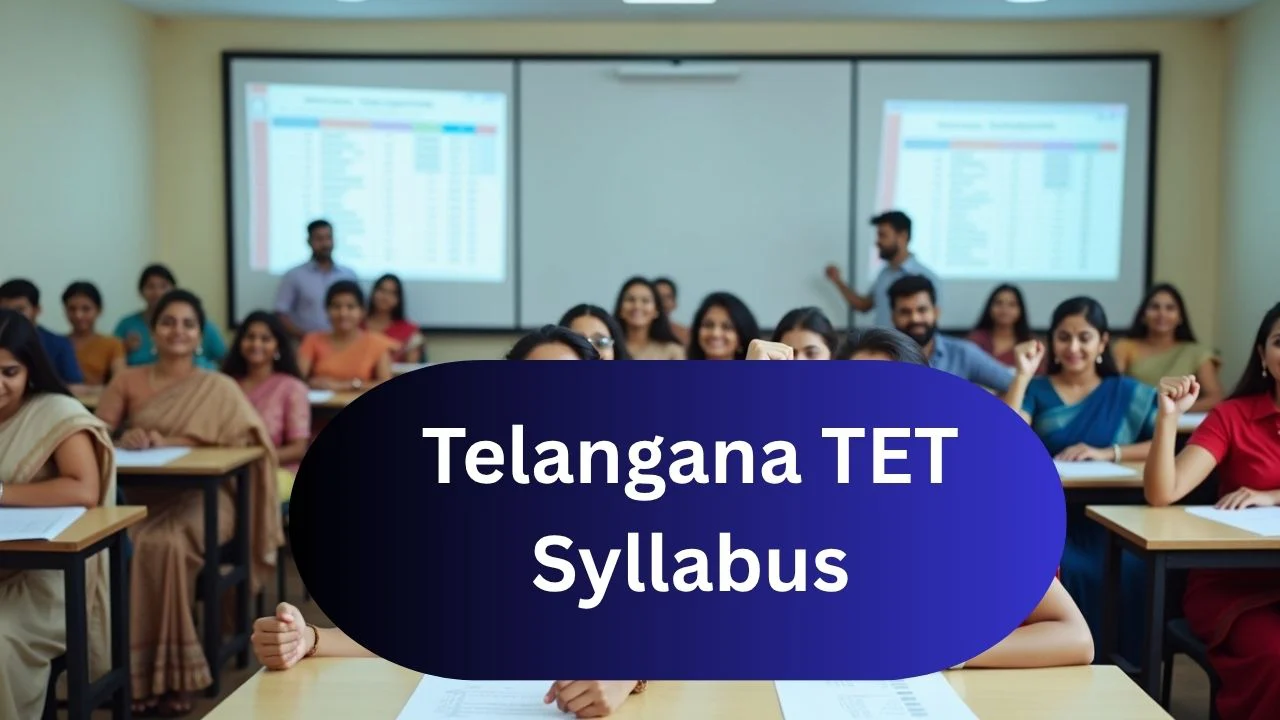The AP Mega DSC 2025 notification was released on April 20, 2025, with 16,347 teaching posts across the state. Complete information related to Mega DSC, including details of related GEOs, teaching posts, exam schedules, syllabuses, and help center details, has been made available on the School Education Department’s website.
A Total of 6,599 Secondary Grade Teacher (SGT) posts in various Schools were mentioned in the Fresh Notification. SGT posts mainly recruit teachers for classes 1 to 5 (Primary Schools). Candidates starting their preparation need the Syllabus and Exam Pattern. This Article focuses on the AP DSC Syllabus in Telugu and English, especially for SGT Posts. To get the Complete AP Mega DSC Notification – Click Here.
AP DSC SGT Exam 2025 Marking Scheme
Secondary Grade Teacher (SGT) Posts are subdivided into SGT and SGT (Special Education). The DSC for Secondary Grade Teacher (SGT) posts will be held for 100 Marks. Out of these, 20% Weightage, i.e., 20 Marks, will be taken from APTET/CTET. The DSC Exam will be conducted for 80 Marks.
AP DSC SGT Exam Pattern 2025
The Exam will be divided into seven parts. Part 1 will consist of General Knowledge and Current Affairs, to be conducted for 8 Marks. Part 2 will be for Perspectives in Education (4 marks), Educational Psychology will be Part 3 for 8 Marks, and Parts 4, 5, 6, and 7 will be for 60 Marks. The table below clearly explains the AP DSC Question Paper Pattern.
| SGT Syllabus | ||
| Paper | Subject | Marks |
| PART – I | General Knowledge And Current Affairs | 08M |
| PART – III | Perspectives in Education | 04M |
| PART – III | Educational Psychology | 08M |
| PART – IV, V, VI, V | Content & Methodologies | 60M (40+20) |
| Total | 80M | |
AP DSC SGT (Special Education) Exam Pattern 2025
| SGT (Special Education) Syllabus | ||
| Paper | Subject | Marks |
| PART – I | General Knowledge And Current Affairs | 08M |
| PART – III | Perspectives in Education | 04M |
| PART – III | Educational Psychology | 08M |
| PART – IV | Category of disability specialization | 20M |
| PART – V, VI, V | Content & Methodologies | 40M (25+15) |
| Total | 80M | |
Detailed Part-wise Explanation of SGT Exam Pattern
Duration of examination: 2 Hours 30 Minutes
| Part | Subject | No. of Questions | Total Marks |
| Part-I | General Knowledge and Current Affairs | 16 MCQs | 8 Marks |
| Part-II | Perspectives in Education | 8 MCQs | 4 Marks |
| Part-III | Education Psychology | 16 MCQs | 8 Marks |
| Part-IV,V,VI,VII,VIII | Content & Methodologies | 120 MCQ | 60 Marks |
Part-IV | Language I (Optional) Telugu/Urdu/Hindi/Tamil/Oriya/ Kannada/ Sanskrit | ||
| Content | 16 MCQs | 8 Marks | |
| Methodology | 8 MCQs | 4 Marks | |
Part-V | Language-II (English) | ||
| Content | 16 MCQs | 8 Marks | |
| Methodology | 8 MCQs | 4 Marks | |
Part-VI | Mathematics | ||
| Content | 16 MCQs | 8 Marks | |
| Methodology | 8 MCQs | 4 Marks | |
Part-VII | Science | ||
| Content | 16 MCQs | 8 Marks | |
| Methodology | 8 MCQs | 4 Marks | |
Part-VIII | Social Studies | ||
| Content | 16 MCQs | 8 Marks | |
| Methodology | 8 MCQs | 4 Marks | |
| TOTAL | 160 MCQs | 80 Marks | |
AP DSC SGT Syllabus 2025 in English
Part-I: General Knowledge and Current Affairs | Standard G.K. and Events happened in the year 2023-2025 |
Part II: Perspectives in Education | History of Education, Teacher Empowerment, Educational Concerns in Contemporary India, Acts / Rights, National Curriculum, National Educational Policy -2020 |
Part II: Perspectives in Special Education and Inclusive Education (Marks: 04) (As per Rehabilitation Council of India, D.Ed. Spl.Ed Curriculum)
|
|
Part III: Education Psychology | Development of Child: Development, Growth & Maturation – Concept & Nature. Principles of development and their education implication. Factors influencing Development – Biological, Psychological, Sociological, emotional. Dimensions of Development and their interrelationship – Physical & Motor, Cognitive, Emotional, Social, Moral, Language relating to Infancy, early Childhood, late Child hood, Adolescence. Understanding Development – Piaget, Kohlberg, Chomsky, Carl Rogers, Erikson. |
Part III: Psychology with reference to CWSN – 08 Marks (As per Rehabilitation Council of India, D.Ed. Spl.Ed Curriculum) |
|
Category of disability specialization – 20 Marks (As per Rehabilitation Council of India, D.Ed. Spl.Ed Curriculum) | HI-Hearing Impairment OR VI-Visual Impairment |
Part IV: Language I (Optional) Telugu/Urdu/Hindi/Tamil/Oriya/ Kannada/ Sanskrit | |
Content & Methodology (Telugu/Tamil/Kannada/Odiya/Urdu) | Class III to VIII – Difficulty level up to Class X |
Language-II (English) | |
Content |
|
Methodology |
|
Mathematics | |
Numbers | Numbers – Four fundamental operations (Addition, Subtraction, Multiplication, Division) – Knowing about Numbers – Hindu-Arabic system of numeration (Indian system of numeration) – International system of numeration (British system of numeration) – Place value and Face value of a digit in a number – Comparing and Ordering of Numbers – Whole Numbers – Factors and Multiples – Prime and Composite numbers – Even and Odd numbers – Tests for Divisibility of Numbers – Common Factors and Common Multiples – Prime factorisation – Highest Common Factor (G.C.D) – Lowest Common Multiple – Integers – properties and fundamental operations – Fractions and decimals – Types of fractions – comparison – Applications of fractions in daily life – four fundamental operations on fractions and decimals- Rational Numbers – Properties of Rational Numbers – Rational Numbers between two rational numbers – Four fundamental Operations on Rational Numbers – Product of reciprocals- Squares – Square roots (Numbers and Decimals) – Properties of Square Numbers – Cubes – Cube roots of Numbers – Playing with Numbers – Games with Numbers – Letters for Digits. |
Numbers | Numbers – Four fundamental operations (Addition, Subtraction, Multiplication, Division) – Knowing about Numbers – |
Arithmetic | BODMAS rule – Ratios and Proportions (Direct, Inverse) – comparing quantities using ratios, proportion, percentage and their applications – Profit and Loss – Discount – Sales Tax/Value Added Tax/Goods and Services Tax – Simple, Compound Interest and their applications. |
Geometry | Basic geometrical concepts (Point, Line, Line segment, Ray, Curves, Polygons, Angles) – Measuring of Lines – Pairs of Lines – Elements of Angles – Measuring of Angles – Types of Angles – Naming of the given 2D figures of Triangles, Square and Rectangle – The Triangle – Types of Triangles and its Properties – Classification of Polygons – Angle sum property – Kinds of Quadrilaterals (Trapezium, Kite, Parallelogram) – Some special parallelograms (Rhombus, Rectangle, Square) – Constructing different types of Quadrilaterals – Views of 3D- Shapes – Identification of Edges, Vertices and Faces of 3D figures (Euler’s Rule) – Nets for building 3D shapes. |
| Data Handling | Reading and interpreting and analysing the Data (pictograph, tally marks, bar graphs, double bar graph, pie charts) – Arithmetic Mean – Mode – Median of ungrouped data – Chance and Probability. |
| Algebra | Patterns – making rules – The idea of variables – formation of algebraic expressions -Terms, Factors and Coefficients – Linear equations in one variable – terms and types of algebraic expressions – finding the value of an expression – Addition, Subtraction and Multiplication of Algebraic Expressions – Multiplying a Monomial by a Monomial and polynomial – Multiplying a Polynomial by a Polynomial – Standard Identities and their applications – Applications of simple equations to practical situations – Exponents and Powers – Negative exponents – Laws of exponents – Expressing large numbers in the standard form – Factorisation – Division of Algebraic Expressions Continued (Polynomial ÷ Polynomial) – Linear Graphs. |
| Mensuration | Measuring Length, Weight, Capacity, Time-Seasons, Calendar, Money, Area – Symmetry (Line and Rotational) – Perimeter of Triangle, Square, Rectangle, Rhombus, Trapezium, Parallelogram, Circle and Polygon), Area of a Quadrilateral, Surface Area and Volume of Cube, Cuboid and Cylinder -Volume and capacity. |
Mathematics Methodology (04 Marks) |
|
Science | |
Content | Science Content (Marks: 08) (Class III To VIII – Difficulty level upto Class X ):
|
Methodology |
|
Social Studies | |
Content | Social Studies Content – 8Marks (Class III To VIII – Difficulty level up to Class X ): Theme – I: Our Universe Theme – II: Production Exchange and Livelihoods Theme -III: Political Systems and Governance Theme -IV: Social Organization and Inequities Theme – V: Religion and Society Theme -VI: Culture and Communication |
Methodology |
|
AP DSC SGT Syllabus 2025 in Telugu – తెలుగు లో సెకండరీ గ్రేడ్ టీచర్ సిలబస్
Paper | Subject | Marks |
PART – I | G.K & ప్రస్తుత వ్యవహారాలు | 08 మార్కులు |
PART – II | విద్యా దృక్పథాలు | 04 మార్కులు |
PART – III | ఎడ్యుకేషనల్ సైకాలజీ | 08 మార్కులు |
PART – IV, V, VI, VII | కంటెంట్ & మెథడాలజీలు | 60 మార్కులు (20+20+20) |
మొత్తం | 80 మార్కులు | |
పార్ట్ – II: విద్యా దృక్పథాలు
1.విద్యా చరిత్ర:
- ప్రాచీన భారతదేశంలోని విద్య పూర్వ వేద మరియు వేద అనంతర కాలం, మధ్యయుగ విద్య
- ప్రీ ఇండిపెండెంట్ ఎరా వుడ్స్ డెస్పాచ్ (1854), హంటర్ కమిషన్ (1882), పక్టోగ్ కమిటీ (1929), సార్జెంట్ కమిటీ (1944)లో విద్య.
- స్వతంత్ర అనంతర కాలంలో విద్య ముదలియార్ కమిషన్ (1952-53), కొఠారీ కమిషన్ (1964-66). ఈశ్వరభాయ్ పటేల్ కమిటీ (1977). NPE-1986, POA 1992
- ఉపాధ్యాయ సాధికారత:
అవసరం, సాధికారత కోసం జోక్యాలు, ఉపాధ్యాయులకు వృత్తిపరమైన ప్రవర్తనా నియమావళి, ఉపాధ్యాయుల ప్రేరణ. ఉపాధ్యాయులు మరియు ఉపాధ్యాయ సంస్థల వృత్తిపరమైన అభివృద్ధి, ఉపాధ్యాయ విద్య కోసం జాతీయ రాష్ట్ర స్థాయి సంస్థలు, పాఠశాలల్లో రికార్డులు మరియు రిజిస్టర్ల నిర్వహణ,
- సమకాలీన భారతదేశంలో విద్యాపరమైన ఆందోళనలు:
- ప్రజాస్వామ్యం మరియు విద్య, సమానత్వం, సమానత్వం, విద్యలో నాణ్యత, విద్యా అవకాశాల సమానత్వం.
- విద్య యొక్క ఆర్థిక శాస్త్రం, మానవ మూలధనంగా విద్య, విద్య మరియు మానవ వనరుల అభివృద్ధి, అక్షరాస్యత – సాక్షర్ భారత్ మిషన్.
- జనాభా విద్య, లింగ సమానత్వం, మహిళల సమానత్వం మరియు సాధికారత, పట్టణీకరణ మరియు వలసలు, జీవన నైపుణ్యాలు.
- కౌమార విద్య
- విలువ విద్య విద్యలో మోరెల్ విలువ మరియు వృత్తిపరమైన ఎథిక్స్.
- ఆరోగ్యం మరియు శారీరక విద్య
- సమగ్ర విద్య – సమగ్ర విద్యలో తరగతి గది నిర్వహణ
- సరళీకరణ, ప్రైవేటీకరణ మరియు ప్రపంచీకరణ దృష్ట్యా విద్య పాత్ర
- కార్యక్రమాలు మరియు ప్రాజెక్ట్లు APPEP, DPEP, సర్వశిక్షా అభియాన్, ప్రాథమిక స్థాయిలో బాలికల విద్య కోసం జాతీయ కార్యక్రమం (NPEGEL). రాష్ట్రీయ మాధ్యమిక శిక్షా అభియాన్ (FMSA), రాష్ట్రీయ ఆవేశేకర్ అభియాన్ (RAA), KGBVలు, మోడల్ స్కూల్స్.
- ప్రోత్సాహకాలు మరియు ప్రత్యేక నిబంధనలు – మధ్యాహ్న భోజనం, ఉచిత పుస్తకాలు, స్కాలర్షిప్, అవార్డులు, సంక్షేమ హాస్టళ్లు రవాణా.
- Current Trends in Education Badi pelusthondi, Badiki Vasta, Mavuru – ManaBadi, Vidyanjali, Swacha Patasala, Inspire, Kalavutsav.
- చట్టాలు/హక్కులు:
ఉచిత మరియు నిర్బంధ విద్య కోసం పిల్లల హక్కు చట్టం – 2009 సమాచార హక్కు చట్టం – 2005 బాలల హక్కులు • మానవ హక్కులు.
- నేషనల్ కరికులం ఫ్రేమ్వర్క్, 2005:
దృక్పథం, మార్గదర్శక సూత్రాలు, అభ్యాసం మరియు జ్ఞానం, బోధనా అభ్యాస ప్రక్రియ, మూల్యాంకనం, దైహిక సంస్కరణలు,
- జాతీయ విద్యా విధానం -2020
పార్ట్ – III ఎడ్యుకేషనల్ సైకాలజీ (విద్యా మనోవిజ్ఞానశాస్త్రము)
- పిల్లల అభివృద్ధి: అభివృద్ధి, పెరుగుదల & పరిపక్వత భావన & స్వభావం. అభివృద్ధి సూత్రాలు మరియు వాటి విద్య చిక్కులు. అభివృద్ధిని ప్రభావితం చేసే కారకాలు జీవ, మానసిక, సామాజిక, భావోద్వేగ. అభివృద్ధి యొక్క కొలతలు మరియు వాటి పరస్పర సంబంధం – శారీరక & మోటార్, అభిజ్ఞా, భావోద్వేగ, సామాజిక, నైతిక, భాష, బాల్యం, బాల్యం, చివరి బాల్యం, కౌమారదశ. అండర్స్టాండింగ్ డెవలప్మెంట్ పియాజెట్, కోల్బెర్గ్, చోమ్స్కీ, కార్ల్ రోజర్స్, ఎరిక్సన్.
- వ్యక్తిగత వ్యత్యాసాలు: ఇంటర్ మరియు ఇంట్రా ఇండివిడ్యువల్ డిఫరెన్స్, మీనింగ్, నేచర్ మరియు థియరీస్ ఆఫ్ మల్టిపుల్ ఇంటెలిజెన్స్, 1Q, అసెస్మెంట్ ఆఫ్ ఇంటెలిజెన్స్, EQ, క్రియేటివిటీకి ప్రత్యేక ప్రాధాన్యతనిస్తుంది. వైఖరి, ఆప్టిట్యూడ్, ఆసక్తి, అలవాటు మరియు మేధస్సుపై దాని ప్రభావం – తరగతి గది అమలు.
- అభ్యాసం: అభ్యాసం యొక్క సిద్ధాంతాలు మరియు విధానాలు, అభ్యాస వక్రతలు, కారకాలు, దశలు, నేర్చుకునే కొలతలు, నేర్చుకునే రకాలు, నేర్చుకునే బదిలీ. జ్ఞాపకశక్తి, మర్చిపోవడం, నేర్చుకోవడం మరియు మూల్యాంకనం- తరగతి గది అమలు – ప్రత్యేక అవసరాలు కలిగిన పిల్లలు సమగ్ర విద్య. 4. వ్యక్తిత్వం: స్వభావం, లక్షణాలు మరియు వ్యక్తిత్వ సిద్ధాంతాలు, వ్యక్తిత్వ కారకాలు, వ్యక్తిత్వ అంచనా, మానసిక ఆరోగ్యం, సర్దుబాటు, ఒత్తిడి స్వభావం, లక్షణాలు మరియు నిర్వహణ. భావోద్వేగ మేధస్సు, భావోద్వేగాల నిర్వహణ తరగతి గది అమలు.
PART – IV, V, VI, VII కంటెంట్ & మెథడాలజీలు
ఈ పార్ట్ లలో నాలుగు సబ్జెక్ట్ ల నుంచి ప్రశ్నలు ఉంటాయి. అవి ఇంగ్షీషు, గణితం,సైన్స్, సోషల్ ల నుంచి ప్రశ్నలు ఉంటాయి. వాటి సిలబస్ క్రింది లింకు ద్వారా పొందవచ్చు.
డీఎస్సీ సిలబస్ తెలుగులో – ఇక్కడ క్లిక్ చేయండి





